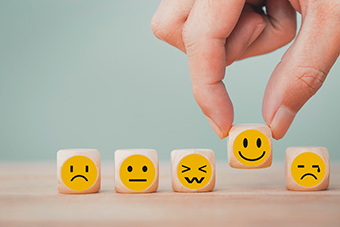3 Reasons Why Mental Health Awareness Matters

May is National Mental Health Awareness Month–and has been since 1949. At Psychiatric Care Center in Redding we believe any age is a good age to learn about mental health. Originally, the goals of this month were mainly to educate the public about mental health, decrease the stigma of mental illness, and encourage a world of inclusion for people with different needs.
Whether you are new to exploring mental health or you are a mental health professional, there is always more to learn. Here are three reasons why mental health awareness matters.
1. Teaching Mental Health to Kids Increases Their Self-Esteem

From toddlers in daycare to senior citizens in retirement homes, people benefit knowing they are not alone when they experience strong emotions, periods of health, and periods of illness.
Socio-emotional learning has gained primary status in early education. At a young age, learning about mental health may encompass any of these core objectives:
- Learning how to recognize which emotion you are feeling
- Practicing how to recognize subtle and strong emotions among classmates
- Practicing how to communicate your needs while feeling a strong emotion
- Knowing how to support a young friend who exhibits anger, sadness, fear, etc.
Children who learn about mental health have higher self-esteem as they grow and also develop healthier coping mechanisms during periods of stress. Can you imagine a world where every adult knew how to feel and manage their emotions? People of any age can benefit from learning about mental health. There are great ways to do this depending on your audience, your goals, and what kind of age-appropriate lesson you hope to impart to people–or to yourself.
2. Increasing Mental Health Awareness Can Save Lives
Although it has improved over time in the United States, mental health stigma still prevents thousands of people from receiving the care they need. Stigma refers to the social disgrace that comes with certain identities based on perceived health, wealth, gender, ability, race, and more.
Have you ever heard a hurtful comment made in your presence that makes fun of people with mental illness? This is a stigma at play. Many people do not receive the care they need because to admit needing help is to align oneself with a stigmatized population–ie., with people who are mentally ill. This is a vulnerable decision, even if it has long-term benefits to living well. Talking about mental health and illness decreases the stigma around mental illness. Whether leading a conversation on how to actualize mental health goals or talking to your teenagers about mental health, you can help people get support.

In many Western societies, men have an expectation to be tough and “strong,” so to admit needing help is also to align oneself with feminized emotionality or “weakness.” Some scientists believe this is a key reason why men have much higher suicide rates than women; this is the cost of not being able to ask for help For a detailed look at social stigmas, read Erving Goffman’s book Stigma: Notes on the Management of a Spoiled Identity from 1963. It is a classic in the field of sociology.
3. Taking Care of Your Mental Health Helps Others, Too
Some people think “self-care is selfish.” But when self-care includes therapy, psychiatry, medication support, and holistic care, people are more equipped to help others. On airplanes, flight attendants remind adults, in the case of an emergency, to put on their air mask first–before children. This is because when anyone with caregiving responsibilities does not attend to their needs, they cannot help others. And then two lives are in jeopardy, rather than one.
Mental health goes beyond ourselves, as individuals too. When people have basic needs met, such as access to safe housing, solid education, non-discriminatory workplaces, and healthy food, they are more likely to experience the joys of life.
Putting your mental health first is vital. There is a new twist to the saying mentioned earlier that “self-care is community-care.” Community care can also look like creating spaces for people to share their journey with mental health; when depression and anxiety or PTSD are affecting someone, it can help to have a space that feels less judgmental than “mainstream society.”
Build Your Dream Team of Mental Health Professionals
If you cannot remember the last time you felt good, or minimally, felt okay, it could be time to prioritize your mental health. Or maybe you want better communication tools with your spouse. Professional support can be an integral part of your mental health journey. PCC offers a complete team of psychiatrists and therapists in Redding. We also provide a range of supportive programs to help people experiencing mental illness.
To learn how our team at PCC can help you or someone you love, request an appointment or call us at (530) 221-7474.





